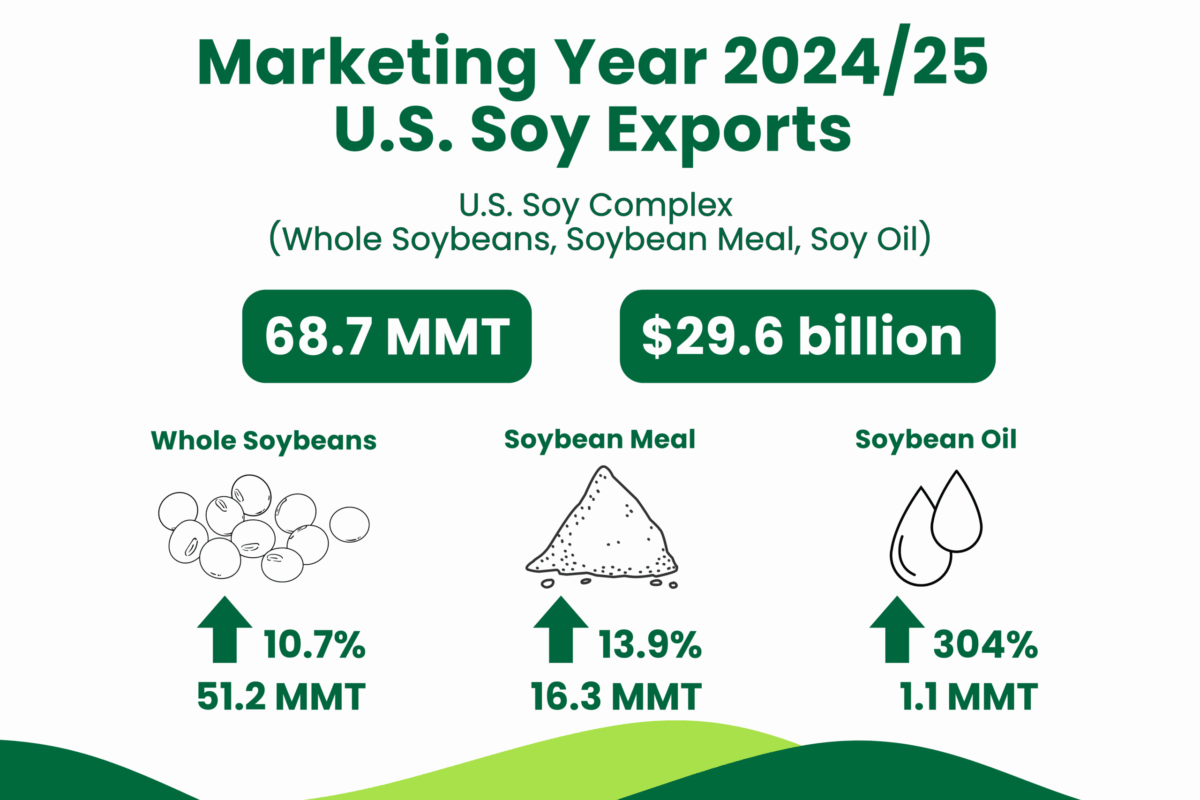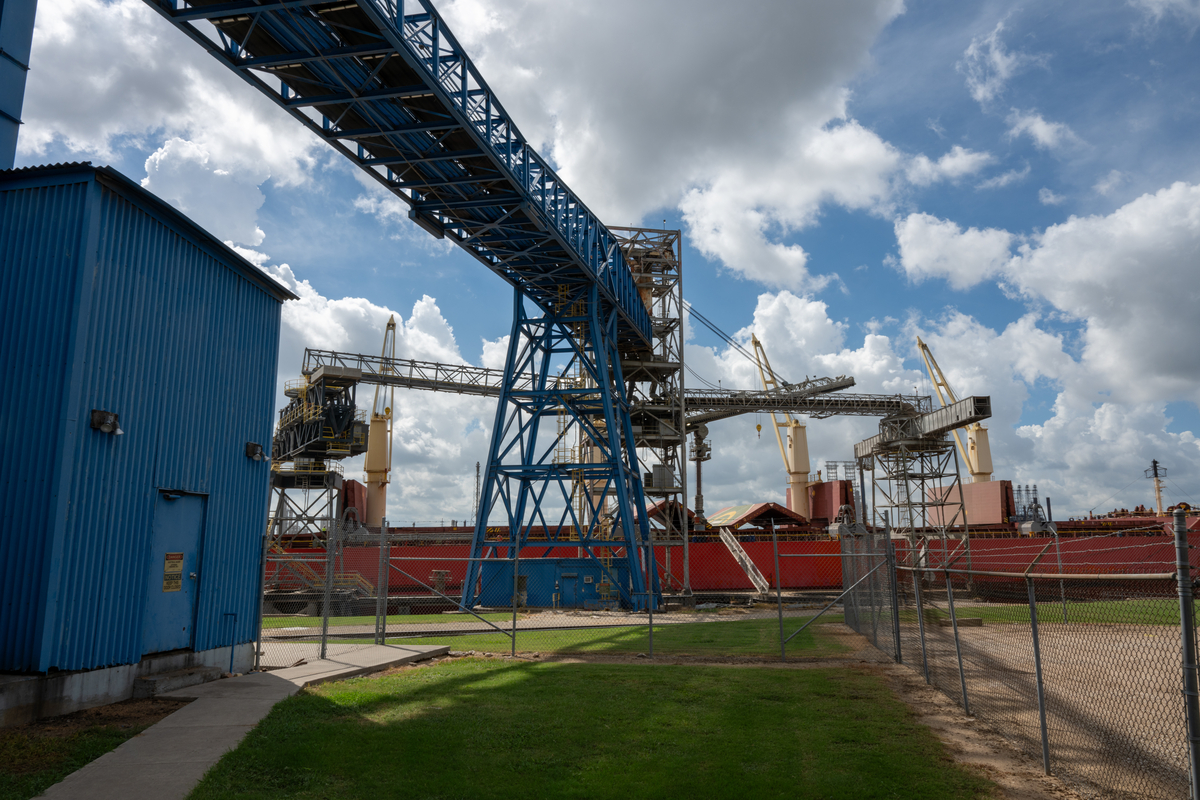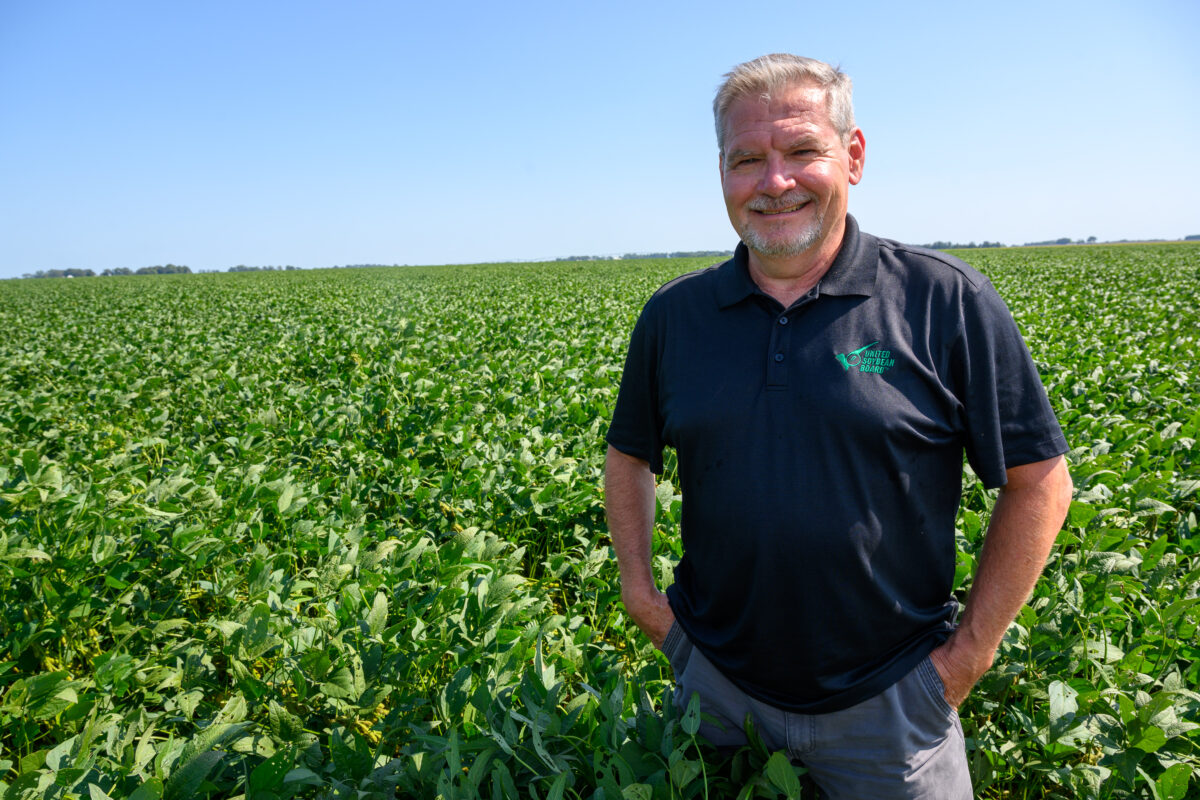Global Food Security Challenge Accepted and Met by U.S. Soy

After touring Edesia, a group of soybean supply chain representatives and soy farmer-leaders representing the World Initiative for Soy in Human Health stop for a group picture in front of Edesia’s headquarters in Rhode Island.
U.S. farmers produce a safe, reliable and consistent supply of food for our country and, through U.S. exports, for many countries globally. While there may be food deserts in the United States where pockets of citizens need periodic food assistance, there are no vast underserved or malnourished populations like those existing in countries where access to quality food and protein is unavailable or limited at best.
In many parts of Africa, Asia and Latin America, thousands of children are not just going to bed hungry — severe malnutrition is widespread and frequently a precursor to life-threatening diseases. The statistics are staggering and hard to fathom. According to the UN World Food Programme, over 30 million children across 15 countries are severely hungry, meaning they suffer from extreme weight loss due to lack of nourishment. Global food security is a crisis of unimaginable magnitude in which America’s 515,000 soybean farmers are playing a vital role to address.
For 15 years, Edesia, a nonprofit social enterprise, has been manufacturing protein-rich food products fortified with U.S. Soy flour at their production facility in North Kingstown, Rhode Island. The packets are shipped around the world and deliver nourishment to millions of malnourished children. Through the World Initiative for Soy in Human Health (WISHH) program, the soy checkoff funds research to verify the advantages of increasing the content of soy in formulations of Edesia’s life-saving products.

These packets are helping build a nutritional bridge to improved health for children in these developing and emerging market countries. It takes almost 170,000 bushels of soybeans to meet Edesia’s annual demand for soy flour in their food products.
Gena Perry, executive director, WISHH, has witnessed the increase in demand for U.S. Soy as Edesia’s efforts to address food security expanded globally.
“Edesia’s research and development team understands soy offers their nutritional product line competitive advantages,” said Perry. “Those advantages include soy’s ability to deliver excellent nutrition and good taste at a competitive price.”
A compelling video, The Power of Protein: U.S. Soybean Growers Take Action for Global Food Security, highlights how the partnership between U.S. soybean growers, WISHH and Edesia is addressing the global food insecurity issue. The video also provides a look inside Edesia’s manufacturing process and how soybean growers are supporting that effort.
“U.S. Soy is an essential ingredient in these packets and so important in this food aid assistance effort. Edesia expects to use 7.5 million pounds of soy flour this year alone. That equates to 170,000 bushels of soybeans,” said Perry. “Public Law 480, signed into law by President Dwight D. Eisenhower after World War II, created the Food and Peace program and laid the groundwork for export of U.S. agricultural products benefiting the United States and people worldwide.”
Because of U.S. Soy’s high nutritional content, it holds great potential to improve the health of malnourished children around the world, leading to increased food security. Through WISHH, that effort to provide food security also extends to helping farmers around the world.
Therein lies the inherent value and flexibility of soy. Whether it is adding value to soy’s No. 1 customer, animal agriculture, or being a vital nutrient ingredient in human food products, the work being done through the soy checkoff, WISHH and its many partnering organizations is improving the health and life of people around the world while solidifying long-term demand for U.S. Soy.



